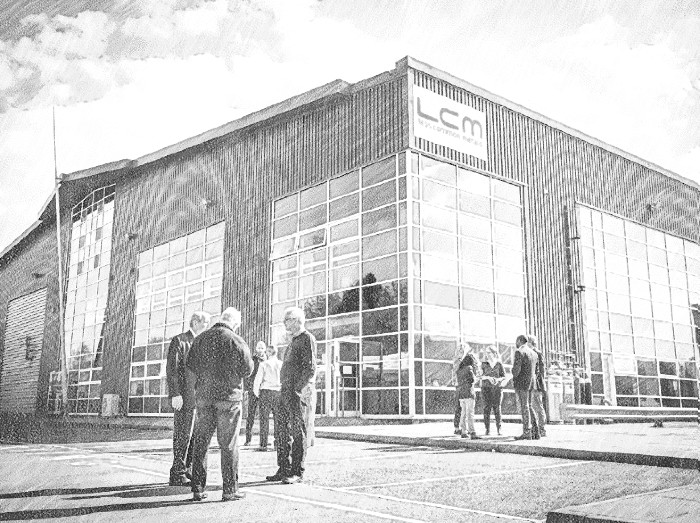The Minor Metals Trade Association recently interviewed Aaron Riley, General Manager at LCM. Read on for company insights…
1. Less Common Metals Ltd (LCM) is located in the UK and at the centre of the complex and geographically challenging supply chain for rare earth magnetic materials. What are the challenges and opportunities for the company of this unique position?
LCM is situated in the midstream and is a crucial link to the overall supply chain of permanent magnets. The challenges in which the company faces are in the complexity of building an alternative supply chain and the need to be cost competitive. Companies acknowledge the need for an alternative supply chain, but the question is, are they willing to pay the premium? UK Government support is lacking compared to other countries, but we are actively collaborating with governmental parties to influence key decisions.
There are however many opportunities which present themselves to LCM being the only commercial facility outside of China and not Chinese-owned producing neodymium (Nd) metal and neodymium praseodymium (NdPr) master alloy by molten salt electrolysis. With the samarium cobalt (SmCo) alloy production side, LCM is the only company worldwide operating the co-reduction process. The company commercially produces both Nd and NdPr metal via fused salt electrolysis, and all material manufactured since 2017 is processed using alternative supply chain material.
In addition, we are expanding our current Nd/ NdPr metal production from a 2-cell operation to 6 cells in the UK. This is an approximate increase from 55t per cell/ per annum to a total capacity of 330t per annum as and when the demand increases. Of course, environmental social governance (ESG) is an important factor for the company, thus all activities are permitted and well within Western World requirements.
2. Last year, LCM launched terbium and ferro-dysprosium production streams. Where is the company now in terms of production capabilities, raw material supply and customer demand for these products?
We have installed two furnaces for the processing of dysprosium (Dy) and terbium (Tb) aiming to meet the specific requirements of our key customers and we are prepared to scale up production in response to demand. LCM decided to expand metal making capabilities to include Dy and Tb because these are classed as heavy rare earths (HRE) and hold significant value. They are vital in various applications such as in the form of high-strength permanent magnets for EV motors, wind turbines, military and defense applications. We have seen a rise in demand for these products.
3. What speciality alloys is LCM offering at this time, how are they important to modern technologies, and what is in now development or being planned for the future?
LCM has the capability to produce and process over 100 specialty alloys, providing customers with extensive flexibility for their research and development endeavours. In addition to facilitating R&D, LCM’s newly bolstered technical department is readily available to support creating clients visions. Specialty alloys find utility across diverse industries, with a recent surge in demand observed in hydrogen storage applications.
4. In September 2023, LCM partnered with Ionic Technologies and automaker Ford to develop a demonstration circular supply chain for rare earth elements in the UK enabling production of high specification magnets for electric vehicles using 100% recycled REE. Where is this project now and what needs to be done next?
As of now, everything is on track to be completed by June 2025. We’ve made significant strides in developing a demonstration circular supply chain for rare earth elements in the UK, the next steps involve fine-tuning the processes. You can read more about this partnership here.
5. At the same time, LCM also signed a strategic agreement with Rainbow Rare Earths for supply of separated oxides of rare earths (NdPr, Dy, Tb) from its Phalaborwa project in South Africa to LCM. How significant is this for the LCM supply chain, and have there been any further developments on this or other partnerships?
This collaboration enhances our access to critical rare earth elements, thereby strengthening our capabilities in meeting the demands of our customers.
Regarding further developments, we’re actively engaged in discussions with other potential partners to explore additional opportunities for collaboration. We’re open to discussions from other parties and are continually evaluating various raw material supply options to optimise our supply chain and enhance our product offerings. We’re excited about the potential of these partnerships, and we look forward to sharing updates as they unfold.
6. What are LCM’s ambitions and plans for the near future?
By forging strategic partnerships with other companies, research institutions, and governmental bodies, and utilising our experience and technical expertise to enhance our products and processes, we aim to become more cost competitive and supply better products.
Collaboration brings expertise, risk mitigation, market expansion, and boosts innovation, while securing committed offtake agreements fosters long-term customer relationships and alternative supply chains, ensuring a reliable flow of rare earth elements for LCM.


